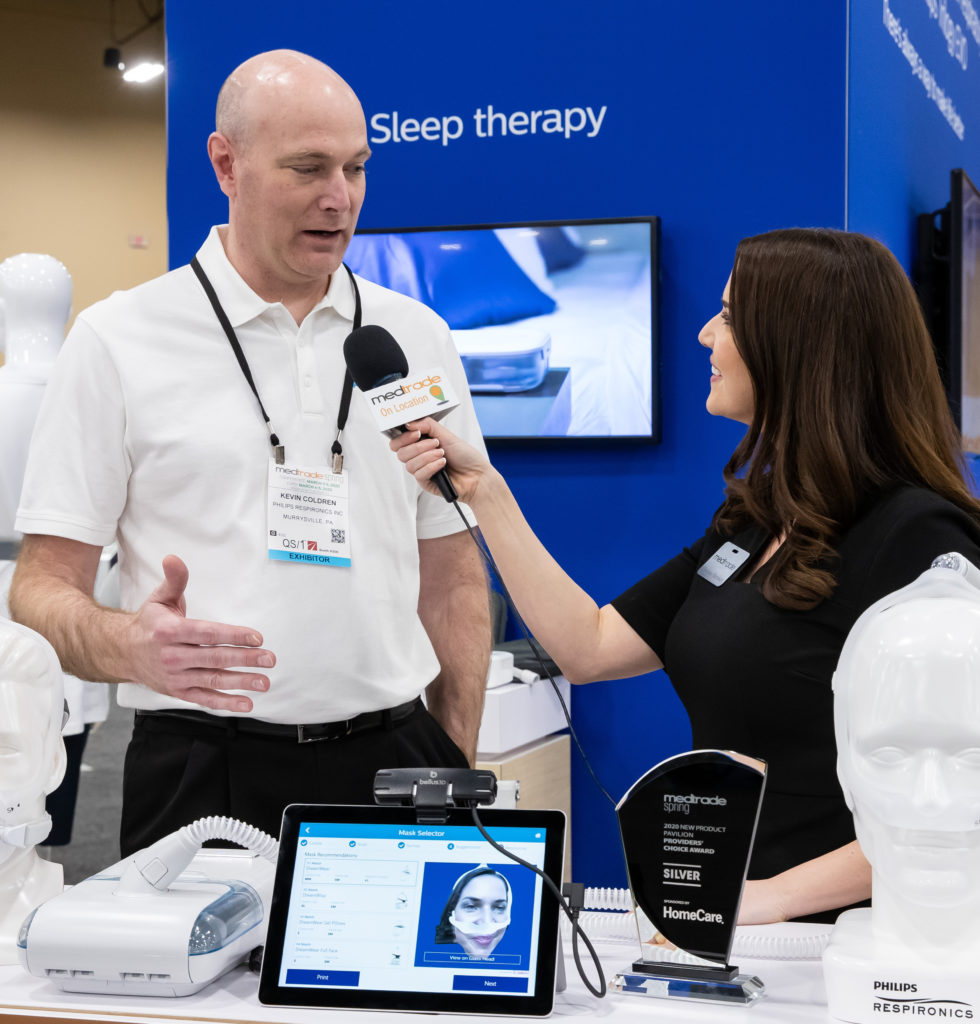MURRYSVILLE, PA – Royal Philips launched its Philips Respironics Mask Selector last week, touted as “the first and only clinically validated, 3D facial scanning solution that helps providers to fit 9 out of 10 patients with the right mask from the start.” According to company officials, “the proprietary Mask Selector algorithm offers a novel solution in the shift toward digitization of health care, helping to improve business efficiencies by reducing costs associated with fitting time and mask waste.”
The Mask Selector is familiar to Medtrade Spring attendees who embraced the technology, voting to make it the New Product Pavilion Providers’ Choice Silver Award (sponsored by HomeCare Magazine) winner. HME providers voted for the Mask Selector on the final day of Medtrade Spring, held earlier this year at the Mandalay Bay Convention Center in Las Vegas.

According to Kevin Coldren, director of Global Product Marketing, Philips Respironics, there was no universal process for selecting mask style, size, and fit for sleep apnea patients prior to the Mask Selector. “Unfortunately, this often led to poor mask fit, which negatively impacted therapy adherence,” said Coldren (pictured here at Medtrade Spring 2020). “To address this, Philips developed the Philips Respironics Mask Selector, the first and only 3D scanning mask software that assists with the selection of sleep apnea therapy masks.”
The Philips Respironics Mask Selector is designed to personalize the mask selection and fitting process for PAP therapy by using a proprietary algorithm and advanced 3D scanning technology to recommend options tailored to a patient’s individual needs. At Medtrade Spring, many of the conversations around the Philips Respironics Mask Selector revolved around how the product advanced the mask selection process for sleep apnea patients.
“By giving on-site demos, we were able to demonstrate how easy and effective the technology is to implement, with a user-friendly interface and quick 3-step mask-fitting process,” Coldren said. “By leveraging knowledge in the true functionality of sleep and sleep stages – built on more than 3 billion nights of sleep therapy data and decades of clinically-guided research and trials – we continue to make headway toward the ultimate vision of helping people live better through sleep, and find new and innovative ways to solve sleep problems.”


